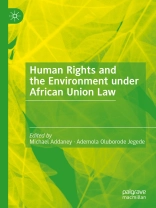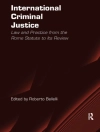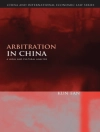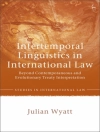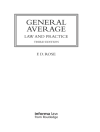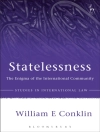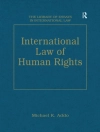This book brings together original and novel perspectives on major developments in human rights law and the environment in Africa. Focusing on African Union law, the book explores the core concepts and principles, theory and practice, accountability mechanisms and key issues challenging human rights law in the era of global environmental change. It, thus, extend the frontier of understanding in this fundamental area by building on existing scholarship on African human rights law and the protection of the environment, divulging concerns on redressing environmental and human rights protection issues in the context of economic growth and sustainable development. It further offers unique insight into the development, domestication and implementation challenges relating to human rights law and environmental governance in Africa.
This long overdue interdisciplinary exploration of human rights law and the environment from an African perspective will be an indispensable reference point for academics, policymakers, practitioners and advocates of international human rights and environmental law in particular and international law, environmental politics and philosophy, and African studies in general. It is clear that there is much to do, study and share on this timely subject in the African context.
Содержание
Part I: New Frontiers in Human Rights and Environment: Environmental Protection under African Union Law.- Chapter One: Human Rights, Regional Law and the Environment in Africa: Legal and Conceptual Foundations; Michael Addaney, Chantelle Gloria Moyo and Thabang Ramakhula.- Chapter Two: The Right to a Clean, Safe and Healthy Environment under the African Human Rights System; Mulesa Lumina.- Chapter Three: Should a human right to a safe climate be recognized under the AU human rights system?; Ademola Oluborode Jegede.- Chapter Four: Advancing human rights through environmental rule of law in Africa; Funmi Abioye.- Chapter Five: Women’s environmental human rights in Africa with reflections on key provisions of the Maputo Protocol; Elsabé Boshoff.- Chapter Six: The Personhood of Natural Entities: African Approaches to the Recognition of Rights of Nature; Oluwabusayo Temitope Wuraola.- Part II: Enforcement of Environmental Rights by Judicial and Qasi-judicial Institutions.- Chapter Seven: Judicial Enforcement of Environmental Human Rights in Africa; Emma Charlene Lubaale.- Chapter Eight: Safeguarding environmental rights in the works of African regional human rights courts and tribunals; Michael Addaney and Chantelle Gloria Moyo.- Chapter Nine: International Environmental Governance: A Case for Sub-Regional Judiciaries in Africa; Eghosa Osa Ekhator.- Chapter Ten: Climate change as a ‘constitutional essential’: Trend and significance for Africa; Ademola Oluborode Jegede.- Part III: Environmental Protection and Human Rights: Regional and National Case Studies.- Chapter Eleven: Implementing human-rights-related environmental obligations in Ethiopia; Desalegn Amsalu.- Chapter Twelve: Women’s Right to Participation in Environmental Decision-making in Uganda; Charlotte Kabaseke.- Chapter Thirteen: Connecting human rights and the environment in Cameroon: Successes, challenges and prospects; Jean-Claude N. Ashukem.- Chapter Fourteen: The Judiciary and Environmental Protection in Zimbabwe; Brewsters Caiphas Soyapi.- Chapter Fifteen: Human Rights-Based Approach to Environmental Protection: Kenyan, South African and Nigerian Constitutional Architecture and Experience; Collins Odote.- Part IV: Business Practices, Human Rights and the Environment.- Chapter Sixteen: Human Rights and Energy in a Neo-Liberal Southern Africa; Lenin Tinashe Chisaira.- Chapter Seventeen: Trade, Human Rights and Environmental Sustainability in Africa with special reference to the Extractive Sector; Omphemetse S. Sibanda Snr.
Об авторе
Michael Addaney is a climate change adaptation law scholar at the Research Institute of Environmental Law, Wuhan University, China, and also affiliated to the Department of Planning and Sustainability at the University of Energy and Natural Resources, Ghana. Michael’s research interests broadly focus on the role of international human rights law in framing and implementing responses to sustainability challenges in sub-Saharan Africa.
Ademola Oluborode Jegede is Professor of Law in the Department of Public Law, University of Venda, South Africa. He has been a research visitor to the Centre for International Environmental Law, USA, Human Rights Institute at Abo Akademi, Finland, and a fellow of Salzburg Global Seminar, Austria. His research focuses on the interface of climate change with human rights of vulnerable groups and general international human rights law.
